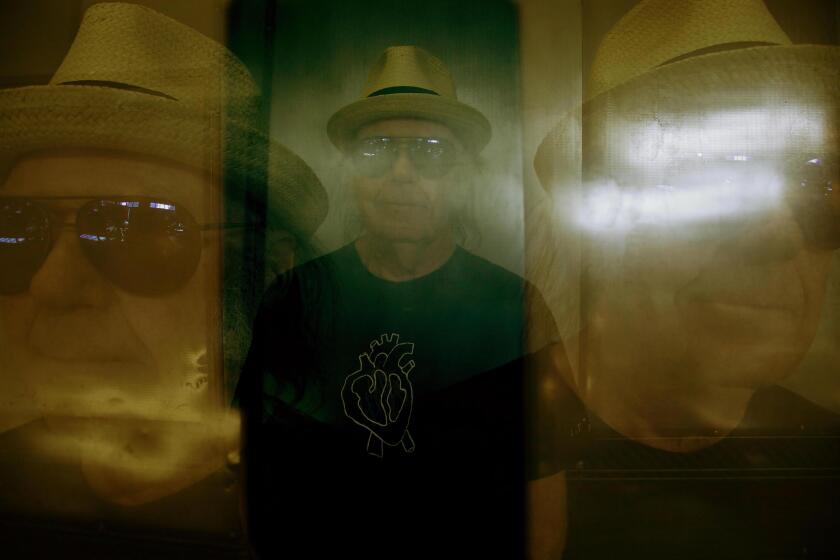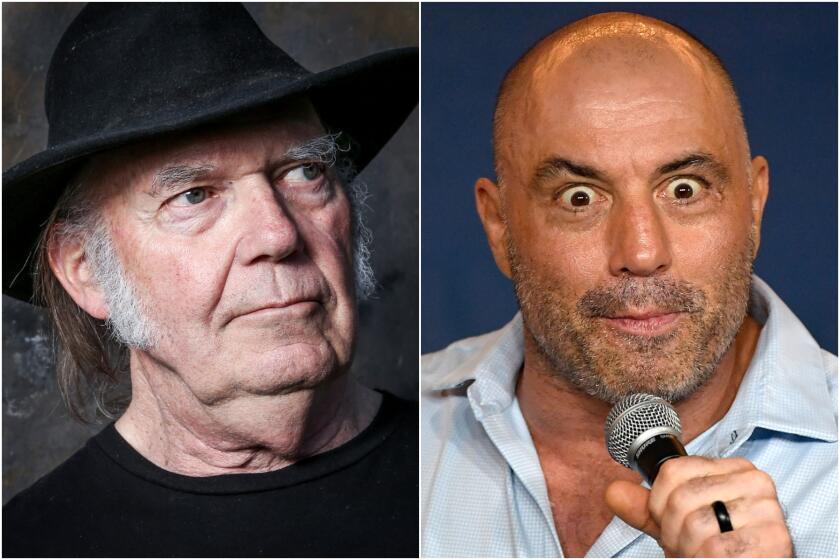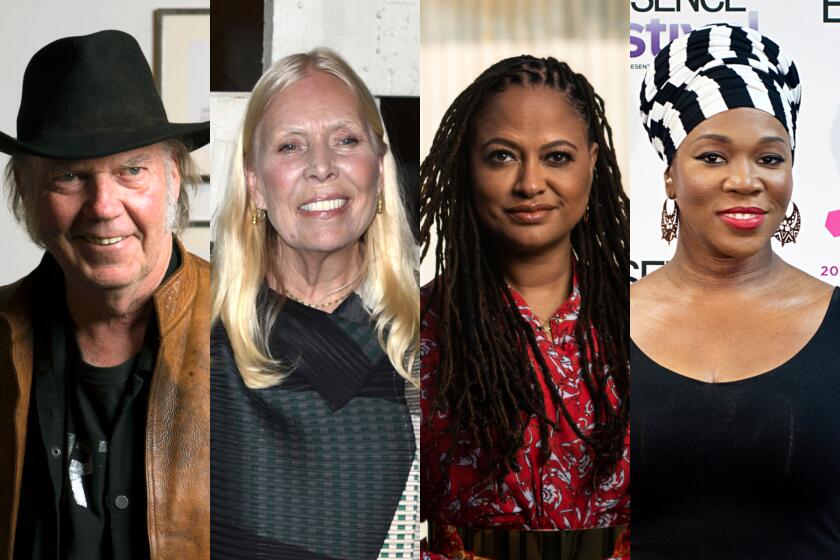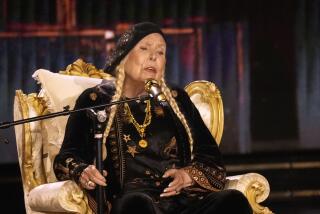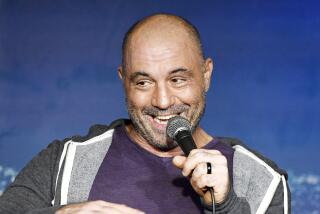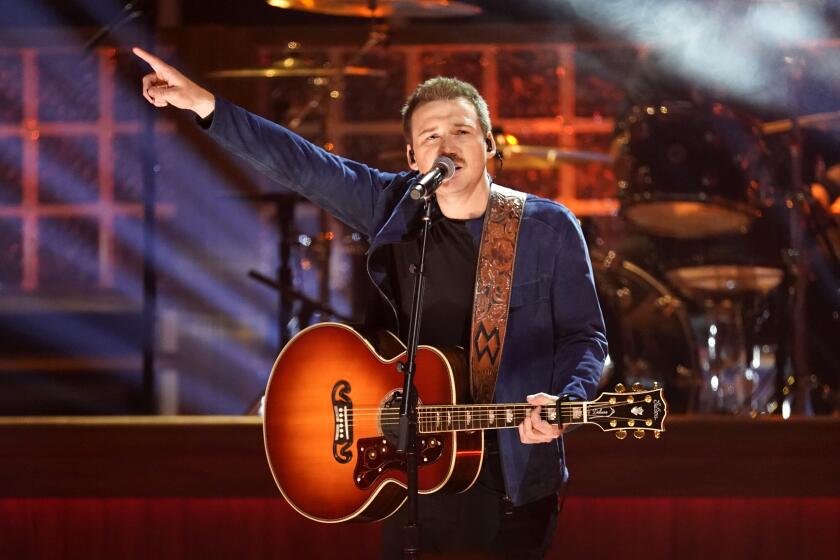Spotify CEO tells employees why the company doesn’t edit Joe Rogan: It’s a platform
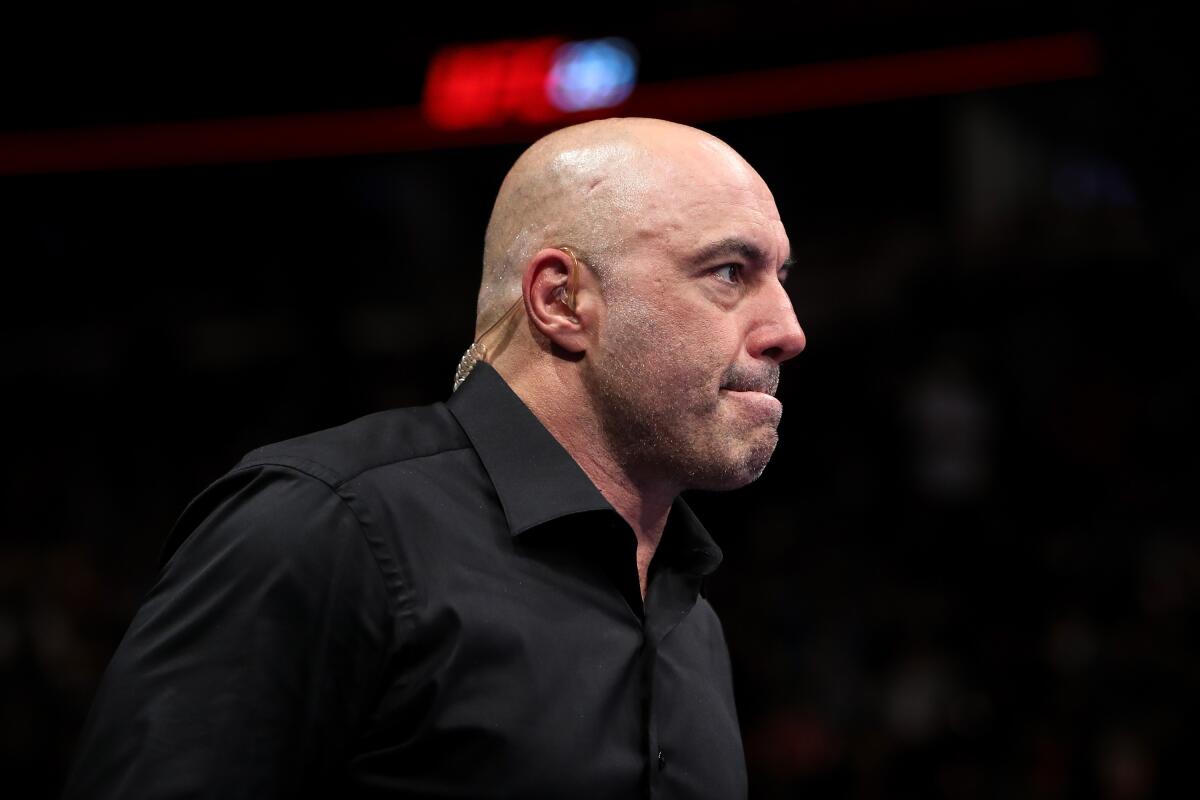
Spotify CEO Daniel Ek told employees Wednesday morning that the streaming service doesn’t closely supervise controversial podcast host Joe Rogan because the company sees itself as a platform to distribute Rogan’s show rather than as Rogan’s publisher, according to two employees who listened to the remarks.
Ek told employees at a livestreamed company town hall that “Spotify doesn’t approve Rogan’s guest list, they don’t look at his content until it goes up, and so they don’t have editing power,” recounted one employee, who requested anonymity because he was not authorized to speak to the media. “They just look at it after it’s already on the platform and remove it if it doesn’t meet guidelines.”
At the employee town hall, both Ek and chief content and advertising business officer Dawn Ostroff “repeatedly used the phrase ‘if we were a publisher,’ very strongly implying we are not a publisher, so we don’t have editorial responsibility” for Rogan’s show, said a second Spotify employee who listened to the remarks — and who, like some Spotify employees listening, found the executives’ position “a dubious assertion at best.”
In a chat linked to the town hall livestream, “A large portion of the angry comments were about how Spotify’s exclusive with Rogan means it’s more than just a regular platform,” said one employee.
Spotify did not respond to a request for comment.
The distinction between a “platform” and a “publisher” may be academic to everyday Spotify users. But Ek’s position on where Rogan falls, which Spotify has been reluctant to explain publicly, is a revealing look at how the company’s leadership interprets its own responsibility (or relative lack thereof) for what Rogan and his guests say on the service’s most popular podcast, “The Joe Rogan Experience.” Critics have accused the show of spreading potentially dangerous “misinformation” about vaccines or COVID-19 treatments.
Qobuz and Tidal received a subscriber boost with Neil Young pulling music off Spotify in protest of misinformation on Joe Rogan’s podcast.
When a company serves as a platform for user-generated content, it generally doesn’t tell users what to post and can be shielded from legal liability for what’s uploaded to its services. When a company acts as a publisher, it has more editorial control over what is said, and it will often create or pay for specific types of content that might draw a profitable audience.
Critics, including some Spotify employees, have accused the streamer of trying to have it both ways with Rogan. The company signed Rogan to an exclusive multiyear licensing deal in 2020, said to be worth around $100 million. The deal made Spotify the sole distributor of Rogan’s show, which used to be hosted on competitors such as YouTube. Rogan’s is the No. 1 podcast in more than 90 markets, Ek told investors on an earnings call on Wednesday.
But Spotify has not made Rogan’s program an in-house editorial product that it supervises as it does the podcast production companies it has acquired, which include Gimlet Media, Ringer and Parcast. Rogan repeatedly has said since striking the licensing deal that Spotify has not tried to interfere with his program. A post on the company’s website announcing the partnership said, “While Spotify will become the exclusive distributor of JRE, Rogan will maintain full creative control over the show.”
Spotify CEO Daniel Ek responded to Neil Young and others removing their music from the platform over COVID-19 misinformation spread on Joe Rogan’s popular podcast.
After weeks of pressure over Rogan’s show from doctors, academics and boycotting artists such as Neil Young, Spotify executives flinched and last weekend promised to add content warnings to COVID-19-related podcasts, including Rogan’s. The company also published its internal guidelines for removing COVID-19 “misinformation,” which it had lagged behind many industry peers in disclosing online.
“We don’t change our policies based on one creator, nor do we change that based on any media cycle or calls from anyone else,” Ek said in the earnings call on Wednesday afternoon. “Our policies have been carefully written with the input from numbers of internal and external experts in this space, and I do believe they’re right for our platform.”
Ek said it may still be too early to know what the impact may be on Spotify’s business from “The Joe Rogan Experience” controversy.
“Usually when we have controversies in the past, those are measured in months, not days,” Ek said. “But I feel good about where we are in relation to that and top-line trends look healthy still.”
Ava DuVernay, Joni Mitchell and India Arie have abandoned Spotify in the wake of Neil Young’s protest against the streaming platform and podcast host Joe Rogan.
During one part of the earnings discussion, Ek, without addressing Rogan specifically, referred to Spotify as a platform for audio creators and envisioned that it could one day have more than 50 million active creators, up from the 11 million it has now. In addition to acquiring podcast companies in recent years, Spotify has purchased an audio books company and a business that created a live audio app.
“We are building the platform that will enable the whole ecosystem to work together on a global scale,” Ek said. “So think of it as 50 million small and medium-sized businesses that we can support by giving them the infrastructure and resources to grow.”
More to Read
The biggest entertainment stories
Get our big stories about Hollywood, film, television, music, arts, culture and more right in your inbox as soon as they publish.
You may occasionally receive promotional content from the Los Angeles Times.
